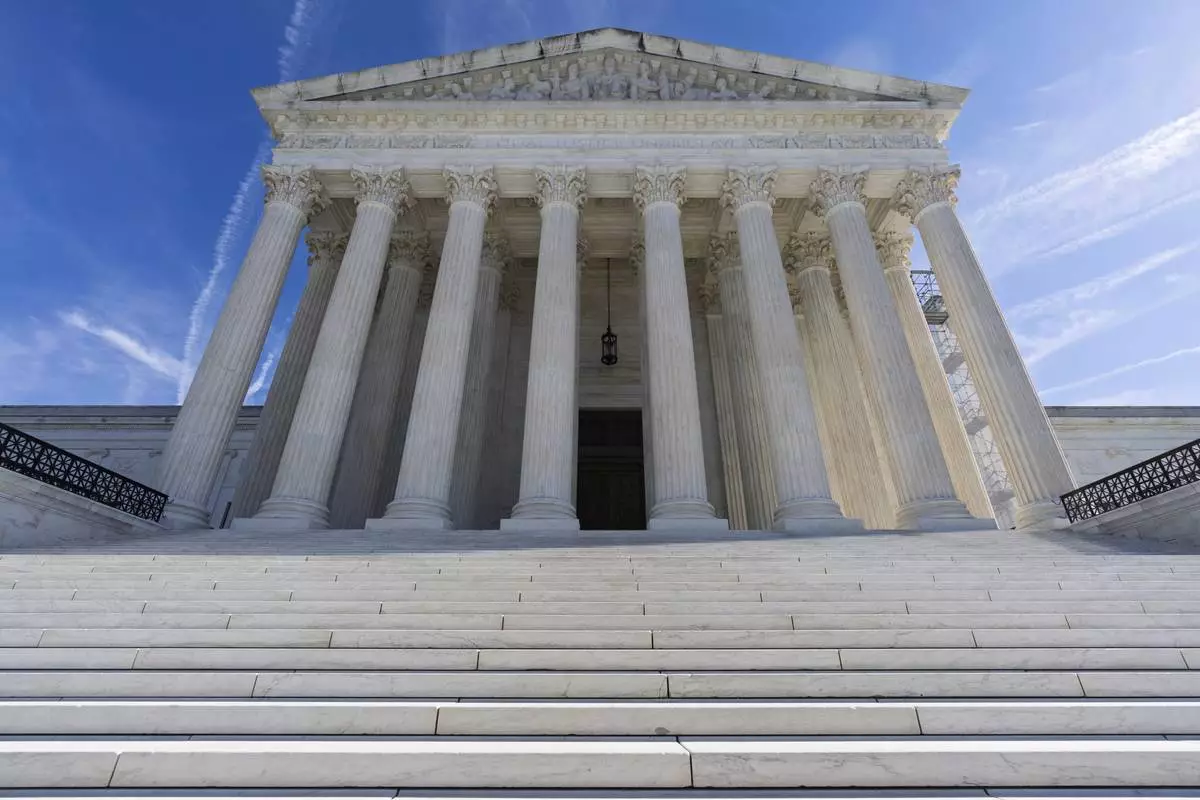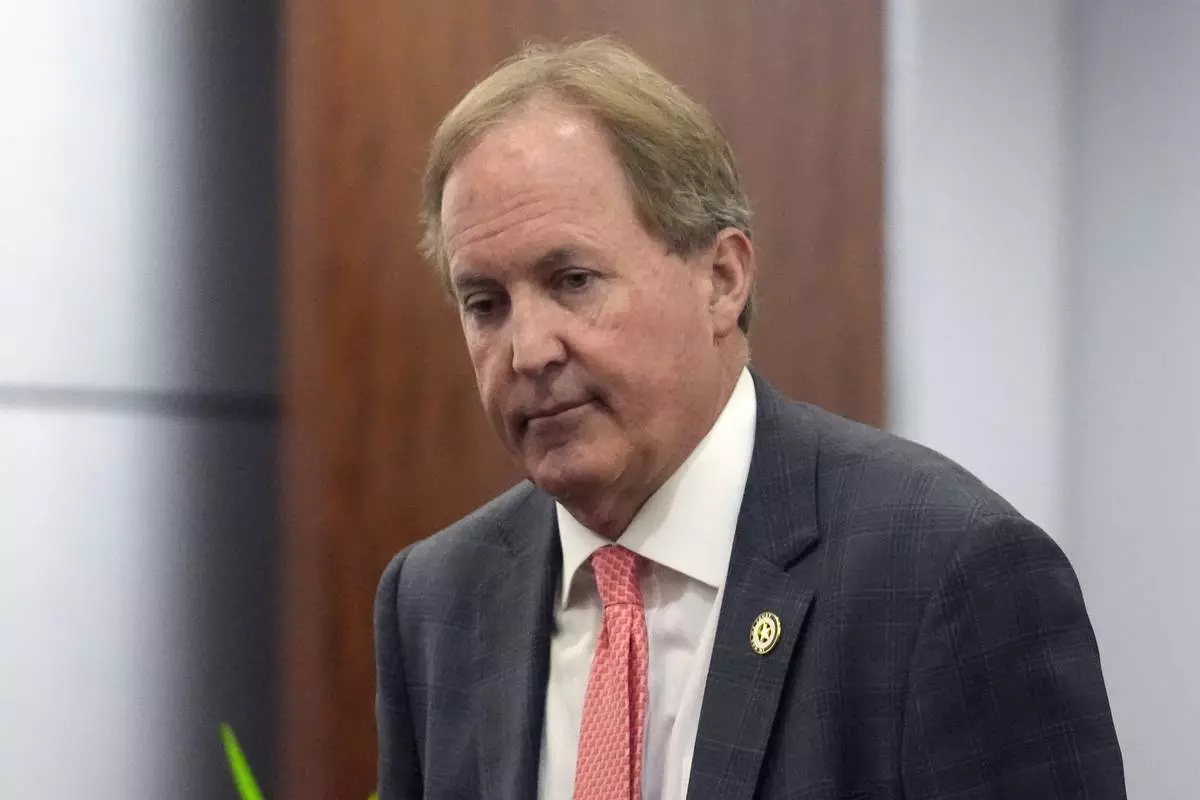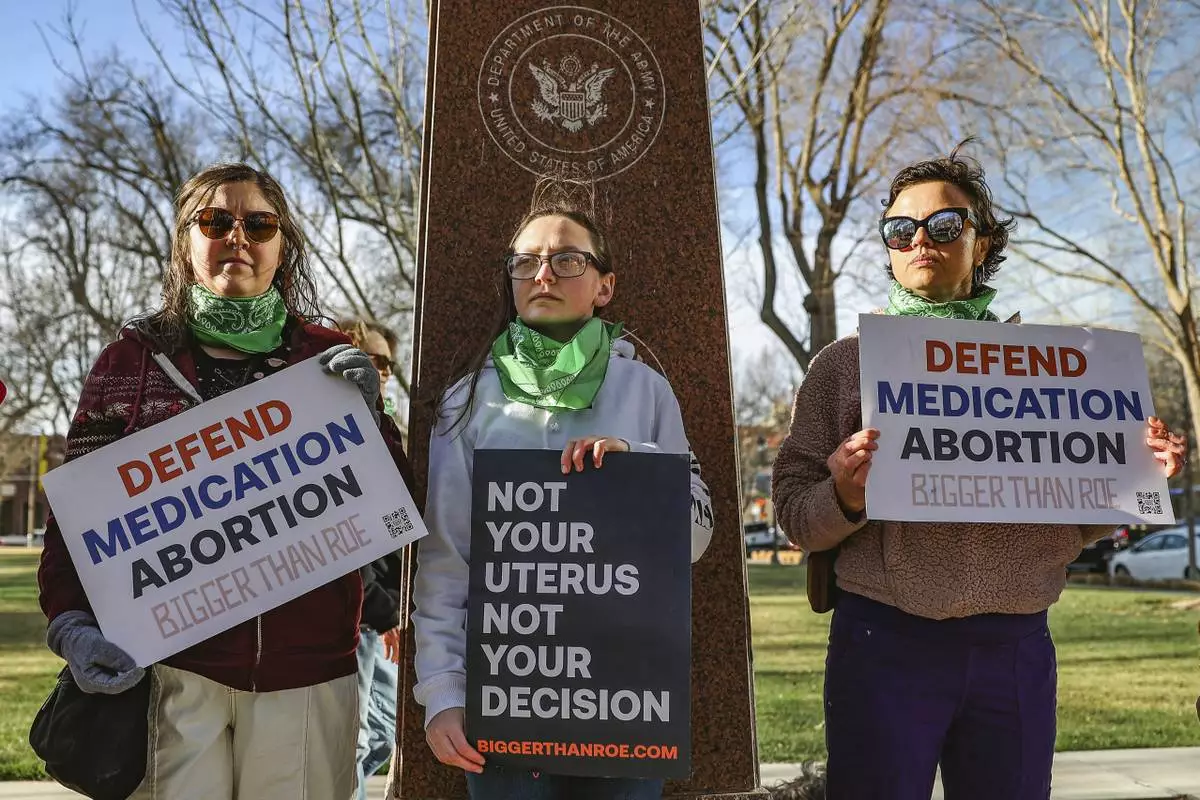WASHINGTON (AP) — The Supreme Court on Friday said it would take up a new religious rights case over whether a Catholic charitable organization must pay Wisconsin's employment tax.
The justices will review a divided state Supreme Court ruling that refused to grant an exemption to the Catholic Charities Bureau, based in Superior, Wisconsin. The state court ruled that the work of Catholic Charities and four related organizations is primarily not religious, although it found that the motivation to help older, disabled and low-income people stems from Catholic teachings.
The case probably will be argued in the spring.
The Supreme Court in recent years has issued an unbroken string of decisions siding with churches and religious plaintiffs in disputes with states.
Lawyers for the Wisconsin groups argued to the court that the decision violates religious freedoms protected by the First Amendment. They also said the court should step in to resolve conflicting rulings by several top state courts on the same issue.
“Wisconsin is trying to make sure no good deed goes unpunished. Penalizing Catholic Charities for serving Catholics and non-Catholics alike is ridiculous and wrong," Eric Rassbach, the lead lawyer for Catholic Charities at the Supreme Court, said in a statement.
Wisconsin Attorney General Joshua Kaul had urged the high court to stay out of the case, arguing that much of the groups' funding comes from state and local governments, and the joint federal and state Medicaid program.
Employees don't have to be Catholic and “people receiving services from these organizations receive no religious training or orientation,” Kaul wrote.
Catholic Charities has paid the unemployment tax since 1972, he wrote.
Wisconsin exempts church-controlled organizations from the tax if they are "operated primarily for religious purposes.” The state high court ruled that both the motivations and the activities have to be religious for organizations to avoid paying the tax.
A group of religious scholars, backing Catholic Charities, told the court that “the case involves governmental interference with religious liberty” that warrants the justices' intervention.
Catholic, Islamic, Lutheran, Jewish and Mormon organizations also filed briefs in support of Catholic Charities.
At the state Supreme Court, the Freedom from Religion Foundation argued that a ruling for Catholic Charities would extend to religiously affiliated hospitals and some colleges across Wisconsin, potentially taking their employees out of the state unemployment insurance system.
Catholic Charities in Superior manages nonprofit organizations that run more than 60 programs designed to help older or disabled people, children with special needs, low-income families, and people suffering from disasters, regardless of their religion, according to court documents.

FILE - The Supreme Court is seen in Washington, Nov. 2, 2024. (AP Photo/J. Scott Applewhite, File)
Texas has sued a New York doctor for prescribing abortion pills to a woman near Dallas, launching one of the first challenges in the U.S. to shield laws that Democrat-controlled states passed to protect physicians after Roe v. Wade was overturned.
Texas Attorney General Ken Paxton filed the lawsuit on Thursday in Collin County, and it was announced Friday.
Such prescriptions, made online and over the phone, are a key reason that the number of abortions has increased across the U.S. even since state bans started taking effect. Most abortions in the U.S. involve pills rather than procedures.
Mary Ruth Ziegler, a law professor at the University of California, Davis, School of Law, said a challenge to shield laws, which blue states started adopting in 2023, has been anticipated.
And it could have a chilling effect on prescriptions.
“Will doctors be more afraid to mail pills into Texas, even if they might be protected by shield laws because they don’t know if they’re protected by shield laws?” Ziegler said in an interview Friday.
The lawsuit accuses New York Dr. Margaret Daley Carpenter of violating Texas law by providing the drugs to a Texas patient and seeks up to $250,000. No criminal charges are involved.
Texas bars abortion at all stages of pregnancy and has been one of the most aggressive states at pushing back against abortion rights. It began enforcing a state law in 2021 — even before the U.S. Supreme Court overturned Roe v. Wade and opened the door to state bans — that barred nearly all abortions by allowing citizens to sue anyone who provides an abortion or assists someone in obtaining one.
Paxton said that the 20-year-old woman who received the pills ended up in a hospital with complications. It was only after that, the state said in its filing, that the man described as “the biological father of the unborn child” learned of the pregnancy and the abortion.
"In Texas, we treasure the health and lives of mothers and babies, and this is why out-of-state doctors may not illegally and dangerously prescribe abortion-inducing drugs to Texas residents,” Paxton said in a statement.
The state said the Texas woman received a combination of two drugs that are generally used in medication abortions. Mifepristone blocks the hormone progesterone and primes the uterus to respond to the contraction-causing effect of the second drug, misoprostol. The two-drug regimen can be used to end pregnancies up through 10 weeks, but the drugs also have other uses and can help induce labor, manage miscarriages or treat hemorrhage.
A phone message left for Carpenter was not immediately returned, nor was an email to the Abortion Coalition for Telemedicine, where she's co-medical director and founder.
New York Attorney General Letitia James, a Democrat, said she would continue to defend reproductive freedom “from out-of-state anti-choice attacks.”
“As other states move to attack those who provide or obtain abortion care, New York is proud to be a safe haven for abortion access,” James said in a prepared statement. “We will always protect our providers from unjust attempts to punish them for doing their job and we will never cower in the face of intimidation or threats.”
It was not clear what specific actions James would take.
While most Republican-controlled states began enforcing bans or tighter restrictions on abortion after Roe v. Wade was overturned, most Democratic states have adopted laws that aim to protect their residents from investigation or prosecution under other states' abortion laws. At least eight states have gone farther, offering legal protections to health care providers who prescribe abortion pills to patients in states where abortion is banned. That scenario makes up for about 10% of all abortions in the U.S., a survey for the Society of Family Planning found.
The New York shield law includes a provision that allows a prescriber who is sued to countersue the plaintiff to recover damages.
That makes the Texas lawsuit thorny.
Even if Paxton prevails in Texas court, Ziegler said, it's unclear how that could be enforced. “Is he going to go to New York to enforce it?” she asked.
Anti-abortion advocates, who legally challenged the Biden administration’s prescribing rules around mifepristone, have been readying provocative and unusual ways to further limit abortion pill access when Trump takes office next year. They feel emboldened to challenge the pills’ use and seek ways to restrict it under a conservative U.S. Supreme Court buttressed by a Republican-controlled Congress and White House.
Earlier this year, the U.S. Supreme Court ruled that a group of anti-abortion doctors and their organizations lacked the legal standing to sue to try to have the U.S. Food and Drug Administration's approval of mifepristone rescinded. But since then, the Republican state attorneys general from Idaho, Kansas and Missouri have sought to have some of the rules around the pills tightened — including to bar telemedicine prescriptions.
Also this year, Louisiana became the first state to reclassify the drugs as “controlled dangerous substances.” They can still be prescribed, but there are extra steps required to access them.
Lawmakers in at least three states — Missouri, New Hampshire and Tennessee — have introduced bills for next year that would bar or restrict use of the pills.
“I began to think about how we might be able to both provide an additional deterrent to companies violating the criminal law and provide a remedy for the family of the unborn children,” said Tennessee state Rep. Gino Bulso, who is sponsoring the legislation there targeting medications used in abortions.
AP reporters Amanda Seitz and Kimberlee Kruesi contributed to this article.

FILE - Texas Attorney General Ken Paxton appears at a pretrial hearing in his securities fraud case before state District Judge Andrea Beall, Tuesday, March 26, 2024 at Harris County Criminal Courts at Law in Houston. (Yi-Chin Lee/Houston Chronicle via AP, File)

FILE - Three members of the Women's March group protest in support of access to abortion medication outside the Federal Courthouse on Wednesday, March 15, 2023 in Amarillo, Texas. (AP Photo/David Erickson, File)












